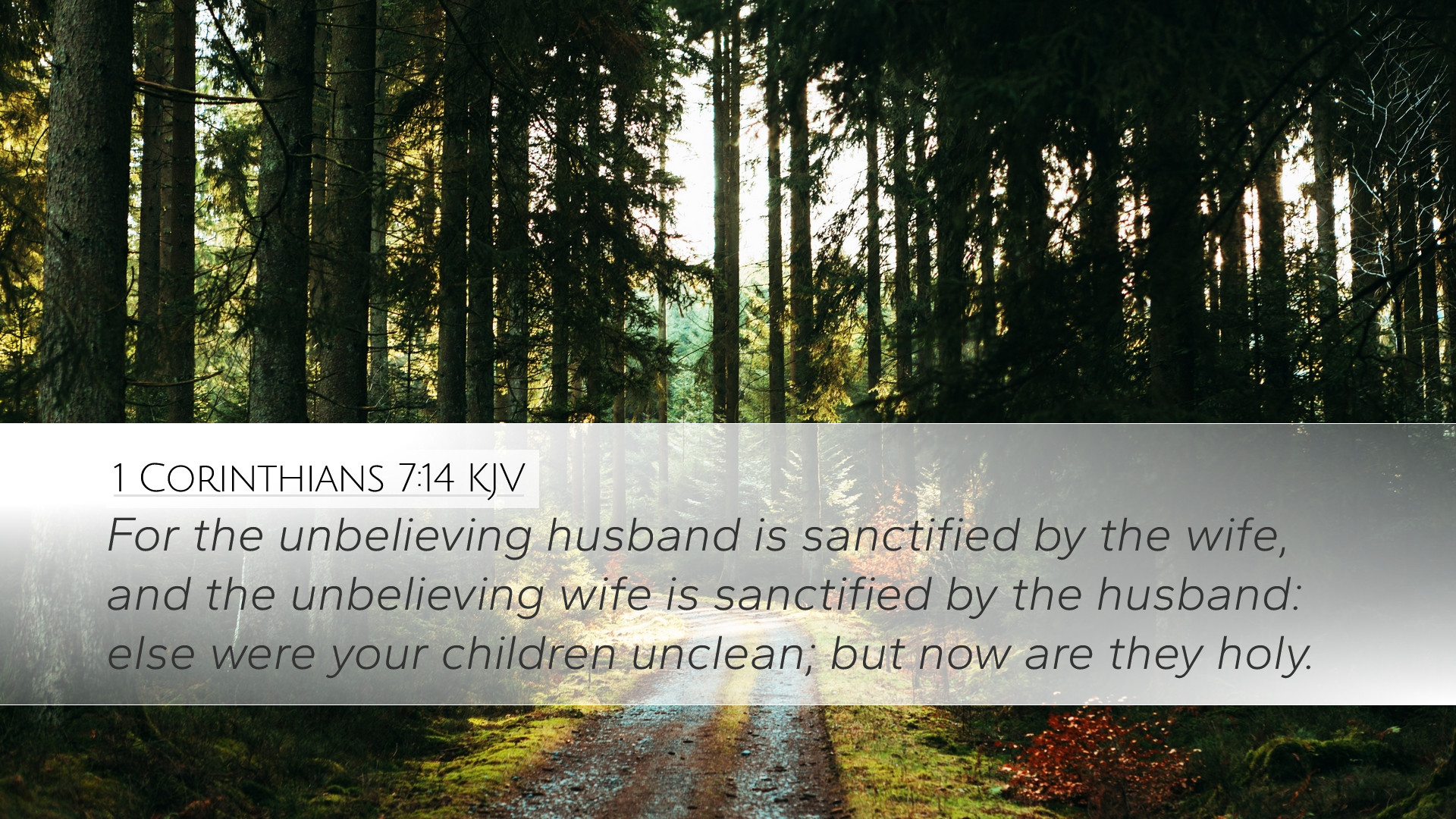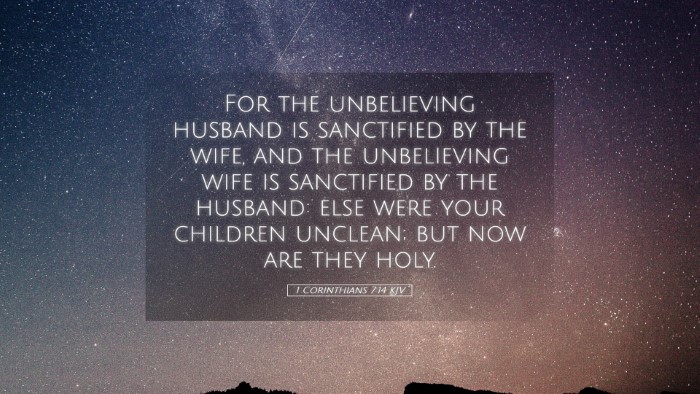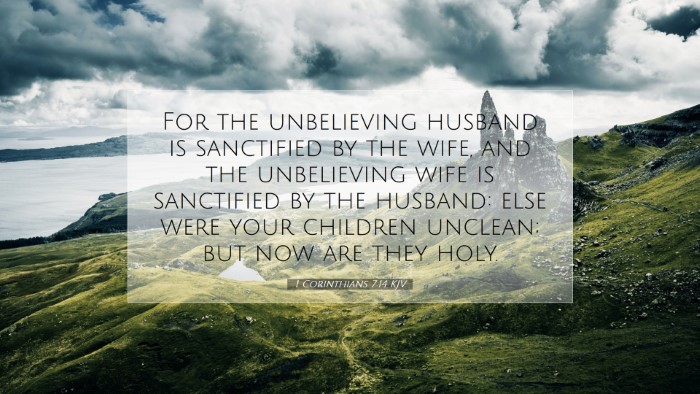Commentary on 1 Corinthians 7:14
Verse Text: "For the unbelieving husband is sanctified by the wife, and the unbelieving wife is sanctified by the husband: else were your children unclean; but now are they holy." (1 Corinthians 7:14, KJV)
Introduction
The Apostle Paul's first letter to the Corinthians addresses various issues that arose in the church at Corinth, including questions regarding marriage and personal relationships. This particular verse highlights the sanctifying influence that a believing spouse has on an unbelieving partner and their children. Understanding this passage requires an examination of its theological implications and practical applications.
Theological Insights
1 Corinthians 7:14 presents a unique perspective on the marital relationship between a believer and an unbeliever. The phrase "is sanctified by the wife" suggests a divinely ordained role of the believer in the marriage. This sanctification involves not only a moral or ethical cleansing but also a relational standing before God.
- Sanctification Explained:
According to Matthew Henry, "sanctification" in this context means that the unbelieving spouse is set apart in a special way due to the presence of the believer. This does not imply salvation but indicates a special relationship with God that is possible through the faith of the believer.
- Children as Holy:
Albert Barnes emphasizes the significance of children in this passage. The text asserts that children of a mixed marriage are not regarded as "unclean." Instead, they have a status of being "holy," implying that they are included within God's grace through the believing parent.
- The Broader Context:
Adam Clarke points out that this declaration should be understood in the broader context of covenant theology, wherein the children of believers are seen as part of the covenant community until they personally reject that status.
Pastoral Implications
This verse offers numerous pastoral applications, particularly for ministers counseling families and individuals in mixed-faith marriages.
- Encouragement for Believing Spouses:
For pastors, the verse serves as an encouragement to those who are in a marriage with an unbelieving partner. The believer's faith creates a spiritual environment where God's working is present, which can lead to eventual faith in the unbelieving spouse.
- Focus on Family Prayer:
Praise reports and testimonies in the church can often arise from families committed to prayer and support. Recognizing the sanctification role of a believing spouse encourages families to engage in collective prayer.
- Raising Children in Faith:
This verse underlines the importance of actively raising children in a Christian environment. Clarke notes the responsibility of the believing parent to nurture and teach their children about the faith, emphasizing the parent's role in spiritual development.
The Role of Faith and Community
The verse highlights not only the importance of individual faith but also the communal aspects of faith within family structures. The Church community must recognize the impact of individual believers who are engaged in mixed marriages.
- Building Bridges:
Churches can provide support systems for these families to encourage the integration of both spouses in church life, fostering a sense of belonging and community that reflects the love of Christ.
- Disciple-Making Opportunities:
1 Corinthians 7:14 serves as a reminder of the mission to share the Gospel with both spouses in mixed marriages, presenting a disciple-making opportunity within these familial contexts.
- Promoting Unity in Diversity:
This passage communicates a powerful message about unity among believers, urging congregations to celebrate diverse family structures while maintaining the focus on the shared faith in Christ.
Conclusion
In summary, 1 Corinthians 7:14 offers profound insights into the sanctifying role of a believer within a mixed-faith marriage, affirming the value of children born in such contexts. The theological implications rooted in sanctification and covenant relationships call both individuals and church communities to facilitate the growth and nurturing of faith within these families. By recognizing the significance of their roles, pastors, students, and scholars are equipped to support believers in mixed marriages, emphasizing God's grace and the communal aspect of faith.


